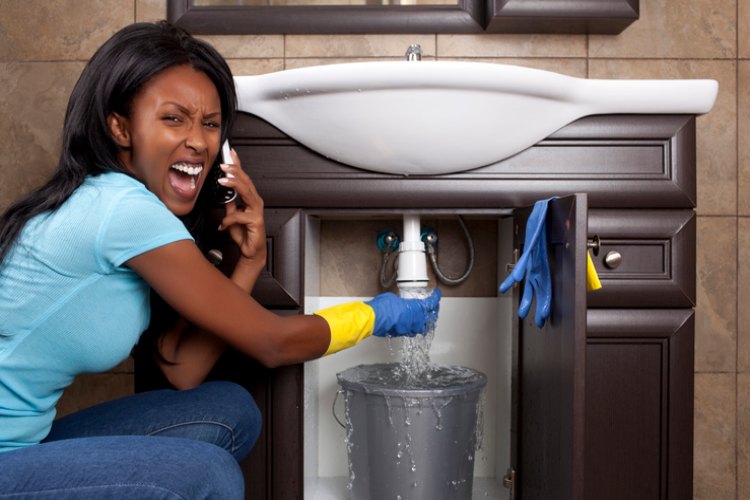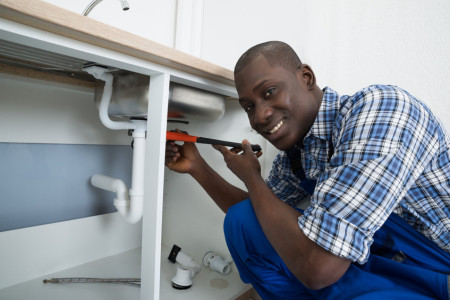We've found this great article about Expert Tips for Emergency Plumbing Repairs down the page on the net and decided it made good sense to quickly share it with you on my blog.

Pipes emergency situations can strike at any moment, creating stress and anxiety and possible damages to your home. Whether it's a burst pipe, a stopped up drainpipe, or a leaky faucet, understanding exactly how to handle the scenario till a professional plumbing shows up can conserve you from more difficulties. This article provides vital emergency situation pipes pointers to aid you mitigate damages and regain control during a plumbing crisis.
Turn Off the Supply Of Water
The primary step in any type of pipes emergency situation is to shut down the water system. For localized issues, such as a leaking tap or commode, shut off the valve near the fixture. In the case of a significant leakage or burst pipe, locate your home's major water shut-off shutoff and turn it off instantly. Knowing the area of these shutoffs in advance can save valuable time throughout an emergency.
Address Small Leakages with Short-lived Solutions
Little leaks can rapidly end up being significant problems if left unchecked. Make use of these short-lived solutions up until expert help arrives:
While these fixes aren't long-term, they can assist lessen water loss and damages.
Unclog Drains Pipes Securely
A clogged drain can be a frustrating and untidy concern. Here's exactly how to tackle it:
If these approaches don't work, stay clear of using extreme force, as it may get worse the blockage.
Handle Overflowing Toilets
An overruning commode can trigger prompt mayhem. Below's what you ought to do:
Shut Off Your Hot Water Heater
In particular emergency situations, such as a burst pipe, it's important to shut down your water heater. This prevents getting too hot or damages to the system when water stops moving. Switch off the power supply to the hot water heater (electrical or gas) and let it cool off to prevent possible dangers.
Briefly Stop a Burst Pipe
A ruptured pipeline can cause considerable water damage in minutes. To alleviate the problem:
Call an expert plumber immediately to deal with the problem permanently.
Deal With Frozen Water Lines Very Carefully
In chillier environments, icy pipelines are a typical emergency. If you suspect a frozen pipe:
Prevent Further Damage
Taking quick activity to decrease damages can conserve you money and time in the future. Below's just how:
. Have an Emergency Plumbing Kit
Prepare a standard pipes emergency situation set to manage minor issues effectively. Your kit needs to consist of:
Having these tools on hand can make a substantial distinction in your capability to handle emergencies.
Know When to Call a Professional.
While quick fixes can aid briefly, specific pipes problems require prompt specialist interest. Call a plumbing if:.
Immediately calling an expert ensures the concern is resolved appropriately and stops further difficulties.
Verdict.
Plumbing emergencies can be frustrating, however with the right understanding and tools, you can handle the situation properly until aid arrives. By switching off the water supply, resolving small leaks, and making use of short-term solutions, you can minimize damages and keep your home safe. Keep in mind, these tips are momentary solutions; always seek advice from a licensed plumbing technician to take care of the source of the trouble. Preparation and quick reasoning are your best allies in any type of pipes emergency.
8 Helpful Tips for Managing Plumbing Emergencies at Home
If your plumbing system hasn’t failed once, wait for it because almost everyone has a story to tell. Sometimes, it could be simple emergencies such as a leaking pipe, a blocked cistern, or even a big burst pipe. In situations like this, you need to have some handy tips to save you some money and from possible damages.
Take care of minor issues early.
Sometimes, you could have avoided an emergency by taking proactive measures while it was still early. Some major plumbing emergencies can be a result of an ignored minor issue. We recommend that you have items like plumbing tapes and other related items. A plumbing tape can allow you to manage minor leaks before the plumber arrives.
Cut off the water supply.
This tip is essential in almost any type of leakage problem. For problems like minor leakages in the toilet or kitchen, turn off the supply that takes water to the affected pipes. If the leakage is a major pipe, you must shut off the supply valve to the entire building. This will help you avoid flooding your home and neighbors if you share a flat.
Know your plumbing system
Folks typically move into a new apartment without understanding the water supply around the building. This can prove disastrous if a water emergency arises and the plumber is far away. The previous tip will prove useless if you don’t practice this one. More importantly, know where your water shut-off valve is located – you’ll need that knowledge to prevent potential home floods.
Have some common handy tools
There are lots of plumbing emergencies that you can handle without hiring a plumber. That’s why you must keep some tools available always. Some tools that you can use to fix simple plumbing emergencies easily include plumbing tapes, screwdrivers, thread seal tapes, plungers, pliers, tape measures, and rubber gloves.
Insulate your pipes from cold
You’ll save yourself from many plumbing expenses if you protect your water pipes from the cold. This is because of the harmful effects that cold weather can have on your pipes. During winter, your pipes can burst from being overly expected to freezing temperatures. So, make sure insulators are there to keep the pipes working correctly.
Avoid practices that will clog your toilet.
Many people indulge in practices that can damage the plumbing system of the entire building. One of these is when they use their toilet to dispose-off garbage. They flush all kinds of things, such as paper towels, bandages, hairs, female sanitary products, etc., down the toilet. This will block your toilet in the long run, incurring unnecessary expenditures. Dump such waste in the trash instead.
Check your dials regularly.
Sometimes, there could be leakages in your home without noticing them in time. So, constantly monitor your water meter dial. If the dial is reading when there is nobody using water, this is an indicator that there is leaking. Check for leaks immediately. Call a plumber as soon as possible if you can’t find any.
https://www.constructionplacements.com/8-helpful-tips-for-managing-plumbing-emergencies-at-home/

We had been made aware of that article on What to Do While Waiting for an Emergency Plumber through a friend on our other web page. Those who enjoyed our blog posting plz be sure to share it. Kudos for your time. Please visit our website back soon.
Schedule Appointment